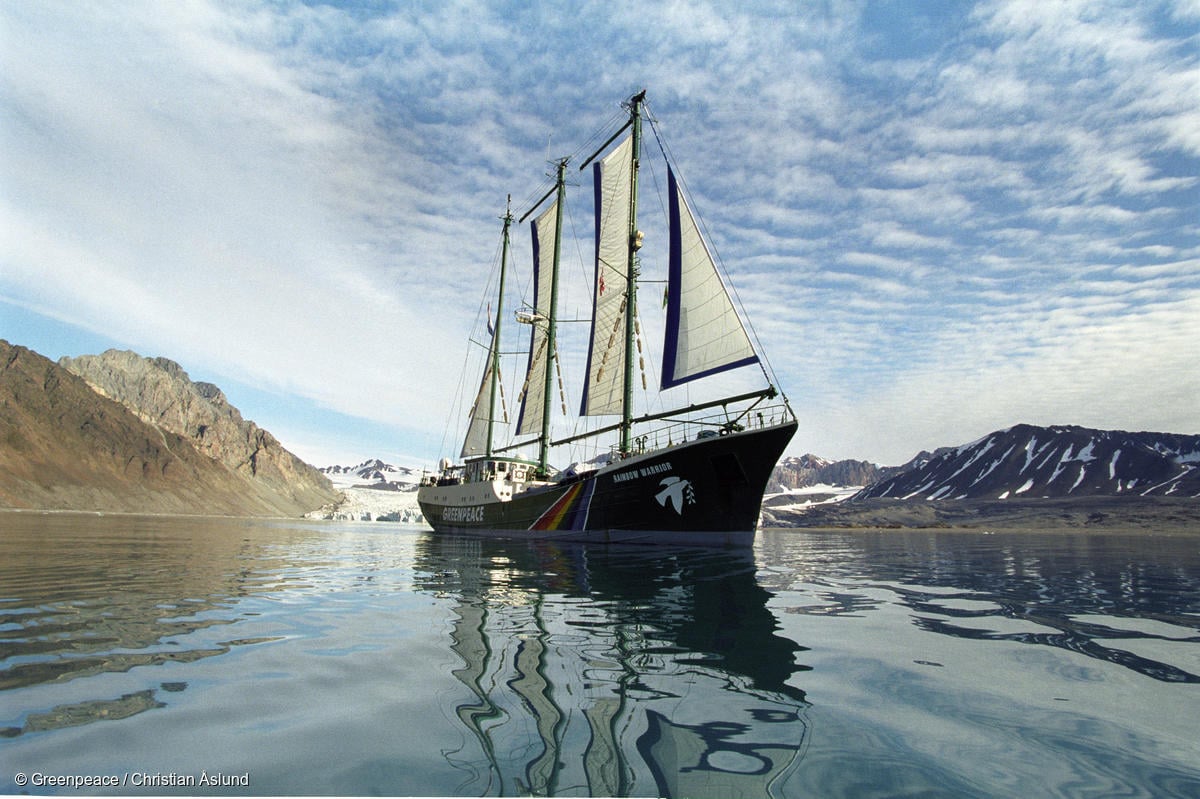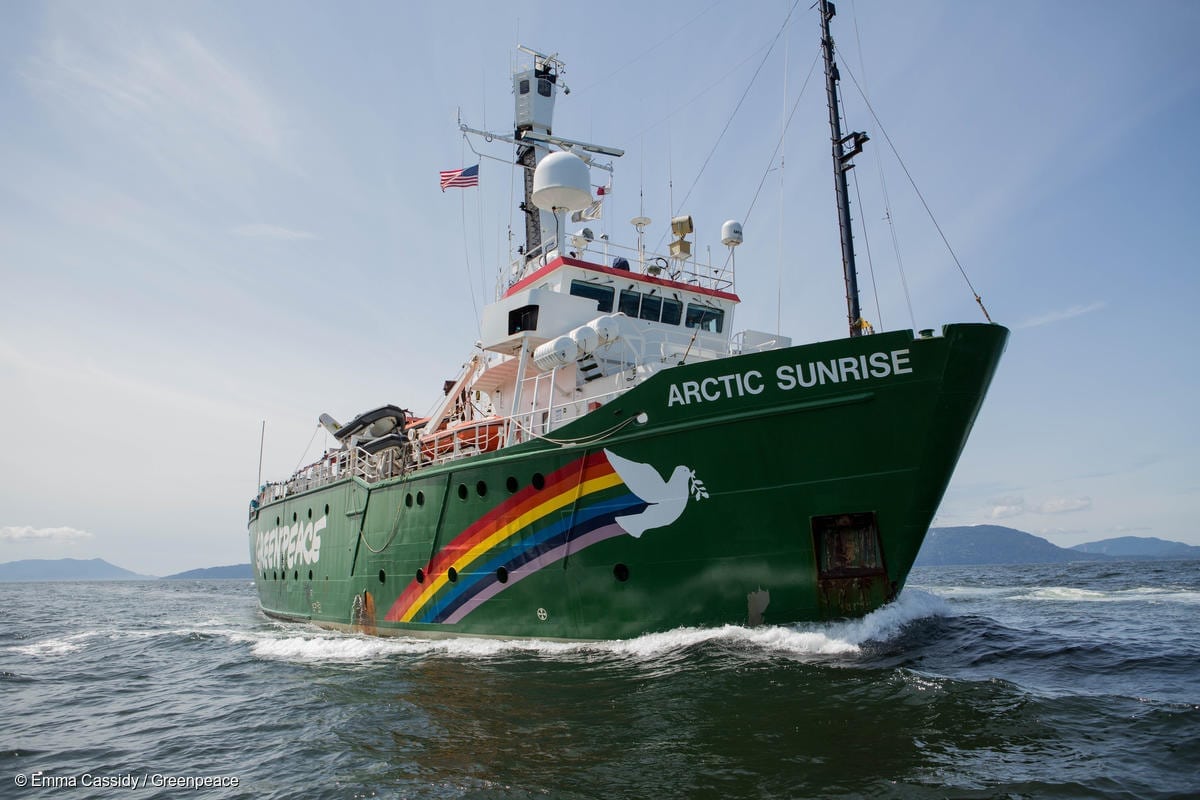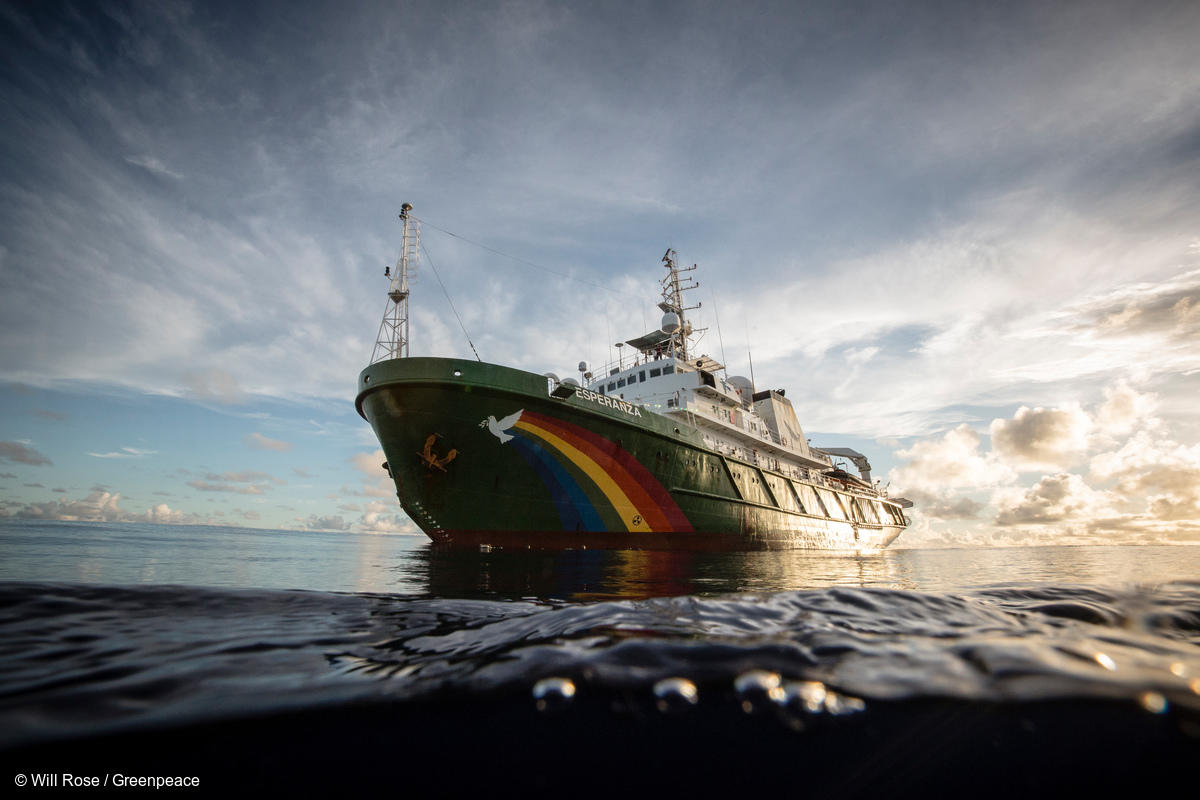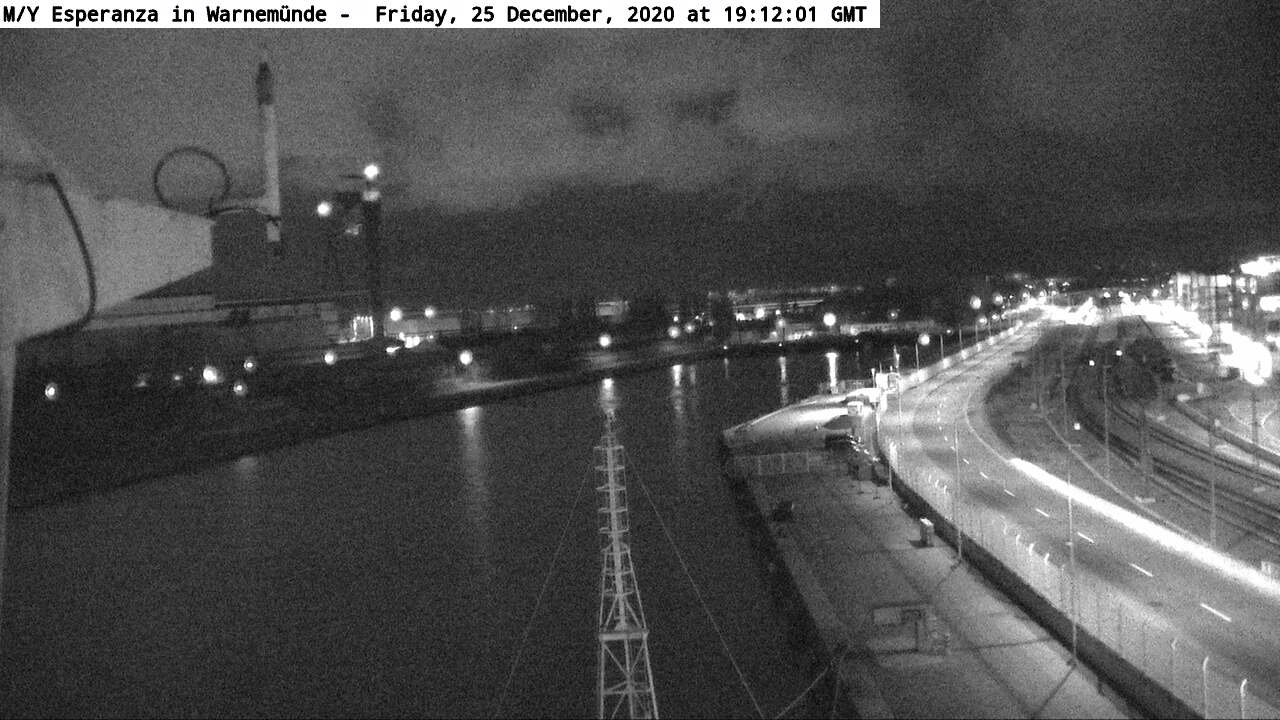Greenpeace ships are at sea somewhere in the world, 24 hours a day, 365 days a year
One organization, three incredible ships
The Rainbow Warrior

The Rainbow Warrior sailing into Longyearbyen, Norway with snow-covered mountains in the background.
The Rainbow Warrior is an undisputed icon. Synonymous with breaking boundaries and fearless campaigning, Greenpeace has sailed with the name Rainbow Warrior since 1978. Our current sailing ship has been patrolling the world’s oceans since 2011.
The Rainbow Warrior has a proud legacy. The original Rainbow Warrior was bombed in 1985 and replaced by the second Rainbow Warrior, which retired from its Greenpeace life on August 16th, 2011, after 22 tireless years. The ship helped end nuclear testing in the Pacific, blocked coal ports, and closed down destructive fishing operations (to name but a few).
The third Rainbow Warrior entered operation on October 14th, 2011, and it is better equipped to carry it on than any Greenpeace ship before it. It is the first ship in our fleet designed and built specifically for Greenpeace. It is one of the most environmentally-friendly ships ever made, built of mostly sustainable materials, with huge sails, and a super-efficient diesel engine when the wind isn’t enough. It comes equipped with a helicopter deck, state-of-the-art communications capabilities, and room for 30 crew.
The Arctic Sunrise

The Arctic Sunrise sails towards Friday Harbor around the San Juan Islands in Washington.
Ironically, before Greenpeace started using the Arctic Sunrise, it was once a sealing vessel. Greenpeace had previously confronted the ship while it was delivering equipment for the French government to build an airstrip through a penguin habitat in the Antarctic to exploit its oil and mineral reserves. The ship’s first contact with Greenpeace was in 1986, in Hobart, Tasmania, when a volunteer scaled the mast, unfurled the Greenpeace flag, and locked himself in the crow’s nest.
Since 1996 the Arctic Sunrise, originally designed as an icebreaker, has come within reach of both poles and navigated both the Amazon and Congo rivers. Because it has a rounded, keelless bottom, it’s perfectly-suited for icy seas. The Arctic Sunrise was the base of operations for Greenpeace activists known as the Arctic 30, who were detained by Russian authorities for months after they protested a Russian Arctic drilling platform. The Arctic Sunrise was held by the Russian government for nearly a year, but it’s now back where it belongs, peacefully protesting somewhere out there.
The Esperanza

The Greenpeace ship Esperanza continues on an expedition in the Indian Ocean to peacefully tackle unsustainable fishing.
Esperanza (Spanish for “hope”) is the first Greenpeace ship to be named by visitors to our website.
Built in Gdansk, Poland, in 1984 the Esperanza was one of 14 vessels commissioned by the Russian government and was used by the Russian Navy as a fire-fighting ship in Murmansk. At 236.2 feet, with a top speed of 15 knots, Esperanza is ideal for fast and long-range work, such as chasing the Japanese whaling fleet! It is equipped with a first-class communications system and its ice-class status makes it suitable for work in the polar regions.
After chartering Esperanza in early 2002, Greenpeace spent many months refitting it to the highest possible environmental standards. Esperanza now sails as a proud example of a truly “green” ship!
Other vehicles
Inflatables
They might not be our biggest boats but they are often our most effective tools at sea — our inflatable boats. For getting between a whaling harpoon and whales, stopping toxic waste dumping at sea and confronting illegal fishing boats, they have no equal.
Technically our inflatables are called Rigid Inflatable Boats or RIBs. To our crew who drive them, they are just inflatables.
The A.E. Bates Thermal Airship
We launch this puppy when it’s time to make a big, loud, unmissable point. Just don’t call it a blimp. This thermal airship is named in honor of the late Mr. A.E. Bates. Mr. Bates gave over 25,000 hours of volunteer service to Greenpeace USA.
The Rolling Sunlight
This portable solar power installation is not just about touring the country to show off the capabilities of solar power (which it does). It’s also about providing much needed clean energy, such as in the aftermath of Hurricane Sandy, when the Rolling Sunlight was on the scene providing power to the relief effort.
Hot Air Balloons
Over the years hot air balloons have played a lead role in several memorable Greenpeace actions around the globe, and Greenpeace USA’s One World Balloon carries on that tradition. The balloon gives Greenpeace a new, higher, vantage point and can send a message high in the sky.
